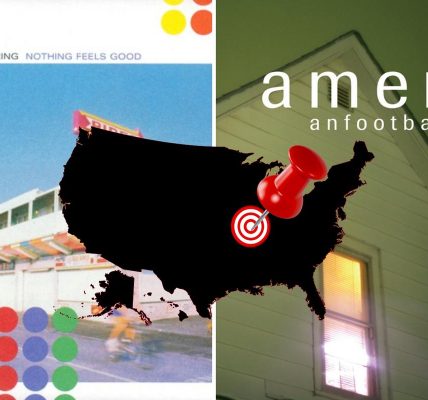Mexican music sensation Julión Álvarez has officially postponed his highly anticipated Saturday performance at AT&T Stadium in Arlington, Texas. This unfortunate news comes as a result of the artist’s inability to enter the United States, as communicated by his dedicated team. Fans who were eagerly awaiting this event are understandably disappointed, as Álvarez is a beloved figure in the regional Mexican music scene known for his captivating performances.
In a joint statement released on Friday (May 23), Álvarez, along with the show’s promoter CMN and his management company Copar Music, explained that “Due to unforeseen circumstances,” he was “unable to enter the United States in time for the event.” This unexpected turn of events has left many fans in a state of uncertainty regarding the status of the show. The team is currently working tirelessly to find a suitable date to reschedule the concert, ensuring that fans will eventually have the opportunity to enjoy Álvarez’s performance.
With nearly 50,000 tickets already sold, this sold-out concert was anticipated to be a memorable night filled with music and celebration for fans across Texas. Both CMN and Copar Music, together with Julión Álvarez’s team, express their gratitude for the patience and continued support of his fans during this challenging time. Álvarez is enthusiastic about the prospect of reconnecting with his Texas audience, and he assures them that plans are in motion for a rescheduled performance soon.
In a heartfelt video message shared on Instagram, Álvarez elaborated on the situation, revealing that his work visa had been canceled. He candidly stated, “It’s a situation that is out of our hands. It’s the information I have and what I can share.” This revelation adds a layer of complexity to the situation, shedding light on the challenges that many international artists face when dealing with visa-related issues.
Prior to this setback, the regional Mexican star, celebrated for chart-topping hits like “Póngamonos de Acuerdo” and “Te Hubieras Ido Antes,” made a triumphant return to the United States in April. His comeback was marked by three historic, sold-out performances at SoFi Stadium in Los Angeles, which drew large crowds and marked a significant milestone in his career.
The concerts in L.A. symbolized Álvarez’s return to the U.S. stage after an eight-year hiatus, stemming from a legal situation that began on August 10, 2017. During that period, the U.S. Treasury Department had targeted the singer due to alleged money laundering and purported connections to drug trafficking. This controversy led to the suspension of his social media accounts and made it difficult for U.S. companies to collaborate with the Chiapas-born artist, restricting his opportunities to perform in the country.
Fortunately, in May 2022, the charges against Álvarez were dropped, leading the artist to announce during a press conference that everything had been “cleared up.” The recent shows in Los Angeles, along with the planned concert in Texas, were significant steps in his trajectory toward the upcoming 4218 Tour in the U.S.; however, specific tour dates have yet to be revealed.
While the reasons behind Álvarez’s inability to enter the U.S. remain unclear, this incident highlights a broader concern affecting numerous international artists. Recently, there have been reports of visa complications impacting various regional Mexican acts and events. For instance, the Michelada Fest in Chicago was canceled earlier this month due to uncertainties regarding artists’ visas, showcasing the challenges faced by performers in this genre.
According to today’s press statement, tickets that have already been purchased “will be honored for the new date.” For those unable to attend the rescheduled concert, “refund details will be provided,” ensuring that all ticket holders have options moving forward.
Check out Álvarez’s heartfelt message to his fans below:

Here you can find the original article; the photos and images used in our article also come from this source. We are not their authors; they have been used solely for informational purposes with proper attribution to their original source.





